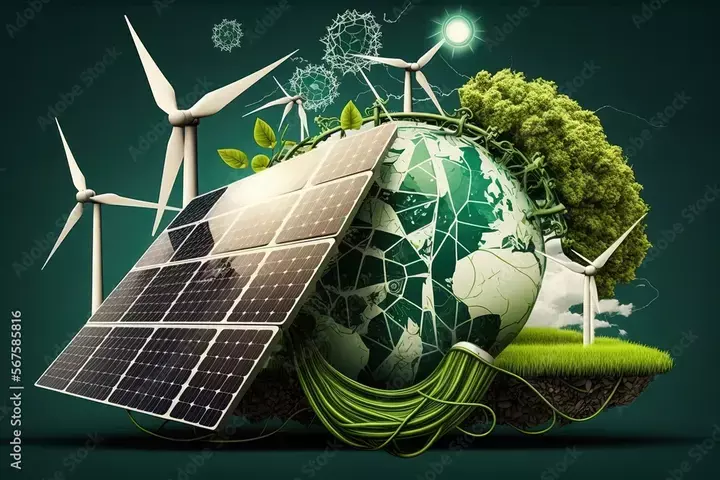Malta’s Updated Climate Plan: A Step Towards a Decarbonized Maritime Industry
Introduction
The maritime industry faces escalating pressure to reduce its carbon emissions and transition towards sustainability. Aligning with this objective, Malta has submitted an updated National Energy and Climate Plan (NECP) to the European Commission. This plan includes notable proposals for the maritime sector, emphasizing the use of biofuels. In this article, we will explore the intricacies of Malta’s updated climate plan and its ramifications for the maritime industry.
The maritime industry is a pivotal player in global trade, but it also significantly contributes to greenhouse gas emissions. As the world shifts towards more sustainable practices, the maritime sector must adapt. Malta’s updated NECP is a comprehensive roadmap outlining the country’s strategy to decarbonize its economy, with specific proposals for the maritime sector. The plan aims to extend the obligation for a biofuel component to the maritime sector, promote alternative fuels, improve energy efficiency, and increase investment in research and development.
Extension of Biofuel Obligation
One of the key elements of Malta’s updated NECP is the proposal to extend the obligation for a biofuel component to the maritime sector. This initiative is expected to significantly reduce greenhouse gas emissions from ships. Biofuels, derived from renewable biological sources, offer a cleaner alternative to traditional marine fuels. By mandating their use, Malta aims to lower the industry’s carbon footprint and contribute to a more sustainable future.
Promotion of Alternative Fuels
In addition to biofuels, the plan emphasizes the increased use of alternative fuels such as liquefied natural gas (LNG) and hydrogen. These fuels produce fewer emissions compared to conventional marine fuels. LNG, for instance, emits less sulfur oxides, nitrogen oxides, and particulate matter, making it a more environmentally friendly option. Hydrogen, on the other hand, produces zero emissions when used in fuel cells, making it an attractive long-term solution.
Improving Energy Efficiency
Malta’s updated NECP also includes measures to improve energy efficiency in the maritime sector. This involves the adoption of more efficient propulsion systems and hull designs. Energy-efficient ships consume less fuel, reducing both operating costs and emissions. Technologies such as air lubrication systems, advanced propellers, and hybrid power systems can significantly enhance a vessel’s energy efficiency.
Investment in Research and Development
The plan recognizes the importance of innovation in achieving decarbonization goals. It includes provisions for increased investment in research and development of new technologies and fuels. This investment is crucial for developing advanced biofuels, improving energy storage solutions, and creating more efficient propulsion systems. By fostering innovation, Malta aims to stay at the forefront of maritime decarbonization efforts.
Impact on the Maritime Industry
Malta’s updated climate plan is set to have a substantial impact on the maritime industry. The extension of the biofuel obligation and the promotion of alternative fuels may initially increase costs for shipowners and operators. However, these measures are essential for reducing greenhouse gas emissions and ensuring the industry’s long-term sustainability.
The plan’s focus on improving energy efficiency and increasing investment in research and development offers long-term benefits. More efficient ships can lower fuel consumption and operating costs, while new technologies can enhance the industry’s competitiveness. Additionally, as global emissions regulations become more stringent, early adopters of these measures will be better positioned to comply and thrive.
Environmental Impact
The environmental impact of Malta’s updated climate plan is expected to be profound. Reducing greenhouse gas emissions from ships will contribute to improved air quality and mitigate the effects of climate change. The plan’s emphasis on alternative fuels and energy efficiency will also decrease the industry’s reliance on fossil fuels, further lowering its carbon footprint.
Summary
Malta’s updated National Energy and Climate Plan presents a significant stride towards a decarbonized maritime industry. By extending the biofuel obligation, promoting alternative fuels, improving energy efficiency, and investing in research and development, the plan aims to reduce greenhouse gas emissions from ships and foster a more sustainable future. While initial costs may rise, the long-term benefits for both the industry and the environment are substantial.
Conclusion
As the maritime industry navigates the challenges of decarbonization, Malta’s updated climate plan serves as a beacon of progress. The industry must embrace these changes, not just to comply with regulations, but to secure a sustainable future. Shipowners, operators, and stakeholders should proactively invest in new technologies, adopt alternative fuels, and improve energy efficiency. By doing so, they can ensure the maritime industry remains a vital part of global trade while contributing to a cleaner, greener world.
The journey towards a decarbonized maritime industry is complex, but Malta’s updated climate plan demonstrates that with the right strategies and commitment, a sustainable future is within reach.
List of Sources
- Malta presents updated climate plan including maritime initiatives …
- Malta’s New Climate Plan to Mandate Biofuel Blending in Shipping
- PDF Consultation on Malta’s Update to the National Energy and Climate Plan …
- Malta’s Efforts in Tackling Climate Change and Pollution
- Press Release by The Ministry for The Environment, Energy and …
- EUROPE: Malta’s updated energy and climate plan will extend biofuels …
- PDF MALTA Draft National Energy and Climate Plan 2021-2030
- PDF EN – European Commission
- Commission Recommendation, Assessment (SWD) and … – European Commission
- Malta’s commitment towards a just and sustainable green transition …


Leave a Reply